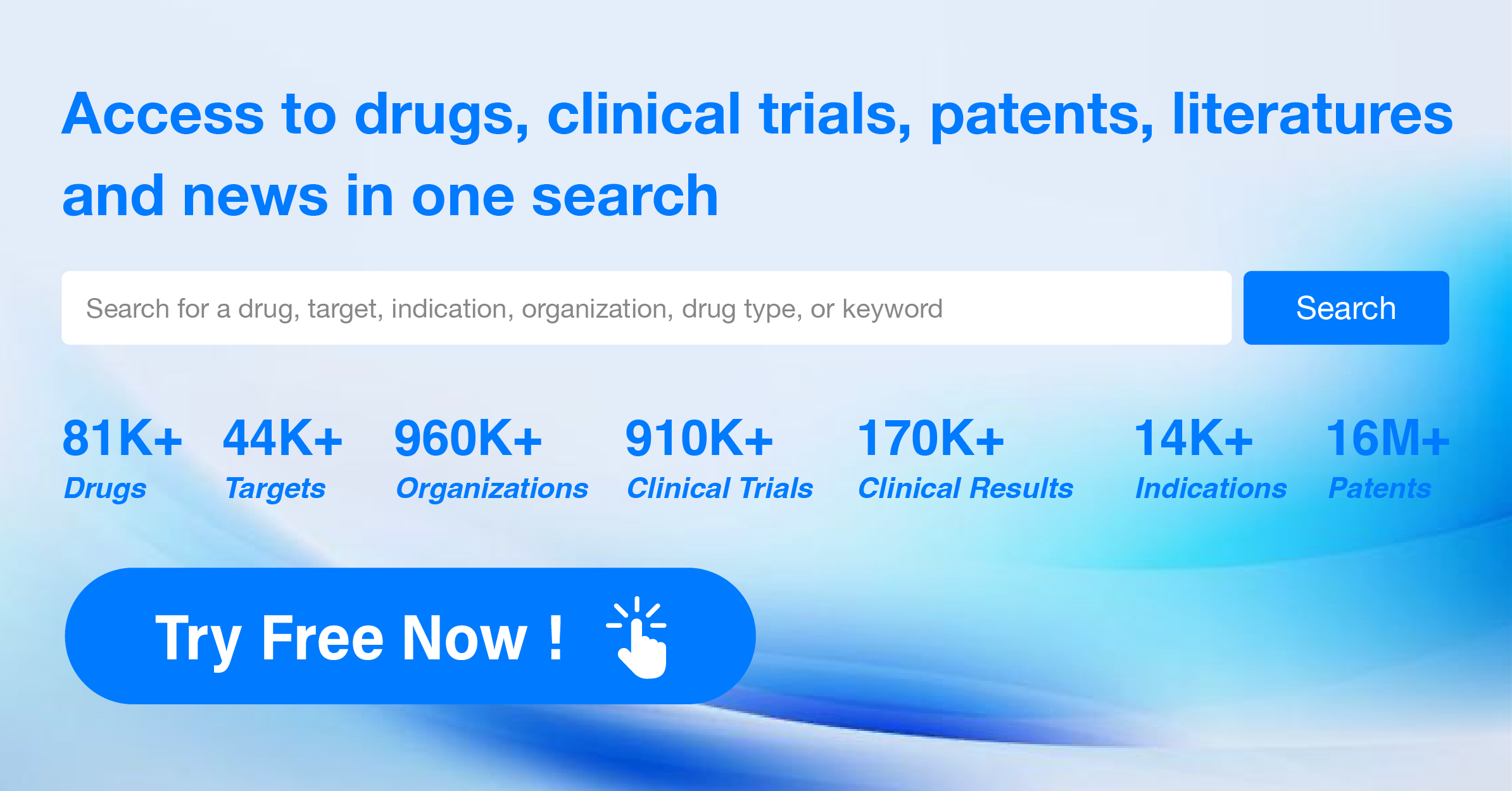Pharma Frontiers: Daily Digest of Global Pharmaceutical News - April 9
1.Roche's Novel Oral Targeted Therapy Drug PI3Kα Inhibitor Inavolisib Proposed for Priority Review
On April 8, according to the CDE official website, Roche's GDC-0077 (inavolisib) has been proposed for priority review in combination with palbociclib and endocrine therapy for the treatment of adult patients with PIK3CA-mutated, hormone receptor (HR)-positive, human epidermal growth factor receptor 2 (HER2)-negative, locally advanced or metastatic breast cancer. Inavolisib is an innovative oral targeted therapy that can offer good tolerance, sustained disease control, and potentially improved prognosis for patients with HR-positive and PIK3CA-mutated breast cancer. The PIK3CA mutation rate is about 40%, which is common in breast cancer patients but often overlooked. Inavolisib is designed to reduce overall treatment toxicity and, unlike other PI3K inhibitors, it exhibits high potency and specificity in inhibiting PI3Kα in vitro. With a unique mechanism of action to degrade PI3Kα mutants, in December last year, Roche announced positive results from the phase III clinical trial INAVO120. The results indicated that inavolisib, combined with palbociclib and fulvestrant, could be a first-line treatment option for patients with PIK3CA mutation, HR-positive, HER2-negative, endocrine-resistant locally advanced or metastatic breast cancer. The INAVO120 study (NCT04191499) aimed to evaluate the efficacy and safety of inavolisib in combination with palbociclib and fulvestrant versus placebo with palbociclib and fulvestrant in patients with PIK3CA mutation, HR-positive, and HER2-negative locally advanced or metastatic breast cancer, who have progressed during or within 12 months after adjuvant endocrine therapy and have not received prior systemic treatment for metastatic disease. The results showed that the inavolisib combination group reduced the risk of disease progression or death by 57% compared to the control group with palbociclib and fulvestrant, with a median PFS of 15.0 months vs. 7.3 months.
2. BeiGene Conducts Phase III Clinical Trial of Highly Selective Bcl-2 Inhibitor in China
On April 8, BeiGene registered a phase III, open-label, randomized study on the drug clinical trial registration and information disclosure platform in China, involving the use of Sonrotoclax (BGB-11417, Bcl-2 inhibitor) in combination with Zanubrutinib (BTK inhibitor) compared to Venetoclax (Bcl-2 inhibitor) in combination with Obinutuzumab (CD20 monoclonal antibody) for the treatment of patients with previously untreated chronic lymphocytic leukemia. The study's primary endpoint is progression-free survival (PFS) based on an Independent Review Committee (IRC), and secondary endpoints include complete response rate (CRR), undetectable minimal residual disease (uMRD4) rate, overall survival (OS), and safety indicators. In October 2023, BeiGene registered the study on clinicaltrials.gov (NCT06073821), and the registration on the China Clinical Trials website implies that the trial will also be conducted in the Chinese population. Sonrotoclax is a potent, highly selective Bcl-2 inhibitor developed by BeiGene, designed to achieve deeper and more durable target inhibition. According to BeiGene, compared to Venetoclax, Sonrotoclax demonstrated greater potency (more than a 10-fold difference) and target selectivity in preclinical studies and tumor models, with the potential to overcome resistance. In terms of the competitive landscape for Bcl-2 inhibitor development, currently, only AbbVie/Roche's Venetoclax is approved for marketing globally. Bcl-xl/Bcl-2 inhibitors under investigation by AbbVie/Roche, such as Navitoclax, Ascentage Pharma's lisaftoclax (APG-2575), and BeiGene's Sonrotoclax are currently in phase III clinical trials.
3. Huadong Medicine Obtains Approval for Phase III Clinical Trials of New Indication for Mirvetuximab Soravtansine Injection
On April 7th, Huadong Medicine announced that the New Drug Application (NDA) for a new indication of Mirvetuximab Soravtansine Injection, developed in collaboration between its wholly-owned subsidiary Hangzhou Zhongmeihuadong Pharmaceutical and ImmunoGen, has been approved by the National Medical Products Administration (NMPA) of China. The approved indication is in combination with Bevacizumab for the maintenance treatment of adult patients with folate receptor alpha (FRα) positive, platinum-sensitive, recurrent epithelial ovarian cancer, fallopian tube cancer, or primary peritoneal cancer who have not progressed after second-line platinum-based chemotherapy. This research is an international multi-center Phase III clinical study. Mirvetuximab Soravtansine is an antibody-drug conjugate (ADC) targeting FRα, co-developed by Zhongmeihuadong and ImmunoGen (now acquired by AbbVie), consisting of an FRα binding antibody, a cleavable linker, and the maytansinoid DM4. Zhongmeihuadong holds exclusive clinical development and commercialization rights for this product in the Greater China region, including mainland China, Hong Kong, Macau, and Taiwan. In November 2022, ImmunoGen announced that Mirvetuximab Soravtansine had received accelerated approval from the U.S. FDA. In March 2024, AbbVie announced that the product had obtained full FDA approval for the treatment of adult patients with FRα positive, platinum-resistant epithelial ovarian cancer, fallopian tube cancer, or primary peritoneal cancer who have previously undergone 1-3 lines of systemic therapy. In China, the NMPA has accepted the marketing application for Mirvetuximab Soravtansine Injection and included it in the priority review for the indication of patients with FRα-positive platinum-resistant epithelial ovarian cancer, fallopian tube cancer, or primary peritoneal cancer who have previously undergone one to three types of systemic treatments. The press release by Huadong Medicine pointed out that ovarian cancer is a difficult-to-treat disease with a significant unmet clinical need. Mirvetuximab Soravtansine has shown statistically significant overall survival benefit in patients with platinum-resistant ovarian cancer, providing a new treatment option for patients with FRα-positive ovarian cancer.
4. Sunvozertinib, an EGFR ex20ins mutation targeted therapy for advanced first-line treatment, gains FDA Breakthrough Therapy designation
On April 7th, Dizal Pharma announced that the U.S. Food and Drug Administration (FDA) has granted Breakthrough Therapy Designation to its first self-developed novel lung cancer targeted drug, Sunvozertinib, for the first-line treatment of patients with advanced non-small cell lung cancer (NSCLC) harboring EGFR exon 20 insertion (ex20ins) mutations. This marks another significant milestone after Sunvozertinib became the first drug to receive Breakthrough Therapy Designation in both China and the United States for the treatment of advanced NSCLC with EGFR exon20ins mutations. Currently, Sunvozertinib is the only drug worldwide that has been granted FDA Breakthrough Therapy Designation for the treatment of NSCLC with EGFR exon20ins mutations across all lines of therapy. EGFR exon20ins mutations are a rare and difficult-to-treat target in NSCLC, accounting for approximately 2%-4% of NSCLC cases. These mutations have a complex spatial conformation with a wide variety of mutant subtypes and strong heterogeneity, rendering traditional EGFR TKIs largely ineffective against this target, with median progression-free survival (mPFS) and median overall survival (mOS) less than half of those with EGFR-sensitive mutations in advanced NSCLC. Sunvozertinib was first marketed in China in August 2023 under priority review, filling a nearly 20-year clinical treatment gap in this field and is currently the only small molecule TKI approved worldwide for the treatment of advanced NSCLC with EGFR exon20ins mutations. With its unique and flexible novel molecular design, Sunvozertinib has broken the curse of drug development challenges associated with EGFR exon20ins mutation targets, comprehensively enhancing the efficacy, safety, and convenience of treatment for this subset of patients.
5. Targeting Treatment-Resistant Depression! Denovo Biopharma's New Drug Liafensine Achieves Primary Endpoint in Phase II Clinical Trial
On April 8th, Denovo Biopharma announced success in the ENLIGHTEN study, an international multicenter clinical phase 2b trial guided by biomarkers, as DB104 (liafensine) reached the primary endpoint and all secondary clinical endpoints for the treatment of patients with treatment-resistant depression (TRD) who tested positive for the genetic biomarker DGM4. According to a press release by Denovo Biopharma, this clinical trial represents an innovative approach in the application of a pharmacogenomic biomarker within the central nervous system (CNS) field, confirming the efficacy and safety of liafensine in patients through precision medicine. Depression is a common mental health disorder, and treatment-resistant depression imposes significant emotional, physiological, and economic burdens on patients, their families, and society as a whole. Currently, there is a very limited selection of drug treatments available, creating a long-standing and severe unmet clinical need in this area. Liafensine is a triple reuptake inhibitor that simultaneously inhibits the reuptake of serotonin, norepinephrine, and dopamine, neurotransmitters that play a crucial role in depression. Denovo Biopharma acquired the global rights to research, develop, manufacture, and sell this product in 2017. The company utilized its proprietary DGM biomarker discovery platform to identify a novel biomarker, DGM4, which can predict the therapeutic efficacy of liafensine and guided the international multicenter ENLIGHTEN study. ENLIGHTEN is a DGM4-genomic-biomarker-guided, randomized, double-blind, placebo-controlled international multicenter clinical phase 2b trial that enrolled 197 patients with treatment-resistant depression. Compared to patients receiving a placebo, those treated with liafensine and showing a positive DGM4 status demonstrated significant improvement in clinical symptoms over a 6-week treatment period.
6. Qilu Pharmaceutical's KRAS G12D Mutation Solid Tumors Class 1 New Drug Approved for Clinical Trials
On April 8th, according to the official website of the Center for Drug Evaluation (CDE), Qilu Pharmaceutical's new drug, QLC1101 capsules, was granted implied permission for clinical trials intended for the treatment of advanced solid tumors harboring the KRAS G12D mutation. The RAS gene is one of the most common mutation genes in tumors, and research indicates that about 30% of tumors carry RAS mutations. Among the RAS family, KRAS mutations are the most common, widely distributed in tumor cells and typically associated with fewer adverse drug reactions, making them a highly focal point in the field of drug development. Currently, research in the KRAS domain has been conducted on subtypes such as G12C, G12D, and G12V mutations. Notably, KRAS G12C inhibitors have progressed rapidly with several drugs reaching the stage of market registration or successful launch. Simultaneously, for subtypes with higher mutation rates, such as G12D and G12V, multiple companies have also initiated research. QLC1101 is a Class 1 chemical drug developed by Qilu Pharmaceutical. Its clinical trial application was accepted by the CDE on January 25, 2024, targeting advanced solid tumors with the KRAS G12D mutation. To date, Qilu Pharmaceutical has not officially disclosed the specific target of QLC1101. Following the approval for clinical trials, the development progress of QLC1101 may accelerate, potentially bringing new therapeutic options to the field of KRAS-targeted treatments.
7.Sino Biopharmaceutical and Boehringer Ingelheim Reach Strategic Collaboration
On April 8, Boehringer Ingelheim (BI) and Sino Biopharmaceutical jointly announced the establishment of a strategic collaboration for the co-development and commercialization of multiple innovative oncology products from Boehringer Ingelheim that are in advanced stages of clinical development. This includes three BI assets currently in clinical stages—Brigimadlin, Zongertinib, and a DLL3/CD3 bispecific T-cell engager—as well as several early-stage clinical assets. According to the press release, Brigimadlin is an MDM2-p53 antagonist currently entering pivotal phase 2/3 trials for the treatment of dedifferentiated liposarcoma (DDLPS). Additionally, Brigimadlin is being studied for the treatment of other cancers such as biliary tract adenocarcinoma, non-small cell lung cancer, pancreatic cancer, and other tumors with MDM2 amplification. Zongertinib is a selective HER2 inhibitor that covalently binds with the tyrosine kinase domain (TKD) of both wild-type and mutant HER2 receptors, including exon 20 mutations. The heightened selectivity of the HER2 TKIs might offer better tolerability and efficacy. It is currently in a phase 1 trial for patients with advanced or metastatic solid tumors as a monotherapy. The DLL3/CD3 bispecific T-cell engager, BI-764532, is in phase 2 trials targeting small cell lung cancer (SCLC) and other neuroendocrine cancers (NEC). Preclinical findings indicate that the monotherapy with DLL3/CD3 can effectively inhibit the growth of DLL3-positive SCLC xenograft models, with responses being dose-dependent and time-dependent. Over the years, Boehringer Ingelheim has actively engaged in the Chinese market, deeply participating in the journey of research and innovation in China, and continuously focusing on several fields including cardiovascular metabolism, oncology, respiratory and immune systems, and the central nervous system.




